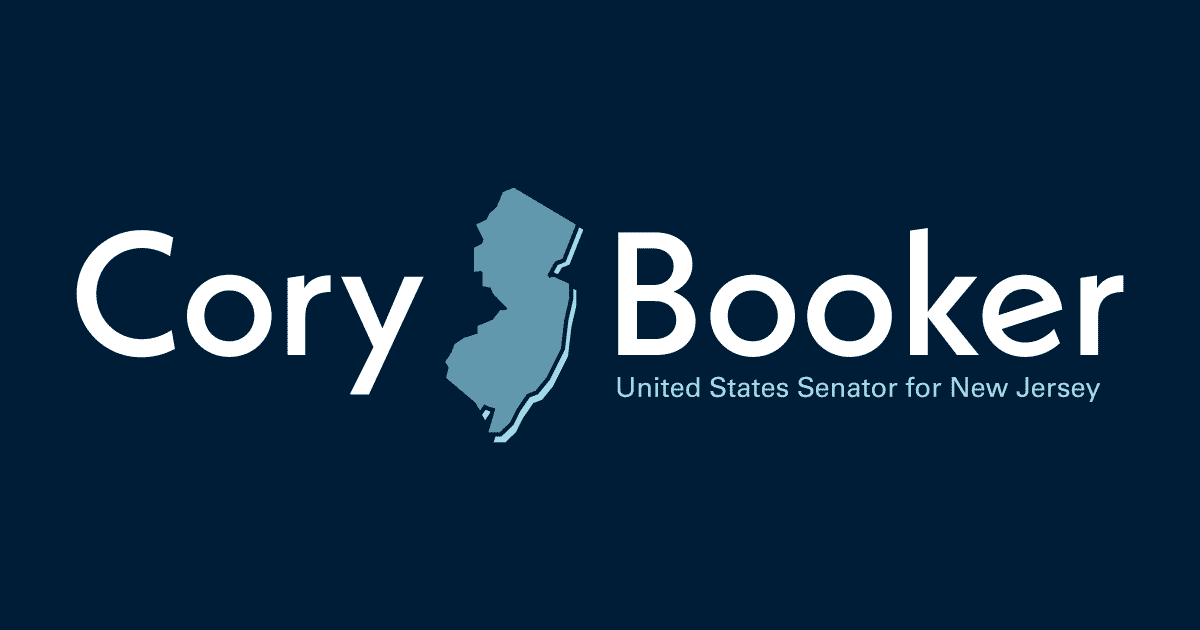Source: United States Senator for New Jersey Cory Booker
WASHINGTON, D.C. – Today, U.S. Senator Cory Booker (D-NJ), a member of the Senate Judiciary Committee, led a letter to Husain Al-Musallam, President of the Fédération Internationale De Natation (FINA) – competitive swimming’s international governing body – urging him to reverse the organization’s recent decision prohibiting the use of swim caps designed for natural Black hair in the upcoming Tokyo Olympics.
This letter was also signed by Senators Dick Durbin (D-IL), Richard Blumenthal (D-CT), Kirsten Gillibrand (D-NY), Chris Van Hollen (D-MD), Tina Smith (D-MN), Mazie Hirono (D-HI), Tammy Baldwin (D-WI), Ed Markey (D-MA), Elizabeth Warren (D-MA), Alex Padilla (D-CA), Raphael Warnock (D-GA), Patty Murray (D-WA), Tammy Duckworth (D-IL), and Bernie Sanders (I-VT).
“In its statement expressing its intent to ensure there are no barriers to swimming, FINA explained that it must ensure that ‘swimwear does not confer a competitive advantage’ to swimmers. What this misses is that the ban on swim caps for natural hair is a barrier in and of itself that primarily disadvantages Black swimmers,” the senators wrote. “For too long, Black people have had to conform to the societal and cultural norms in areas of life from which they have been excluded. It is time to recognize this history and make all spaces – including competitive swimming – inclusive.”
“As an international organization that sets the standards for swimming across the globe, FINA bears a special responsibility to ensure it serves all people and cultures. FINA has stated that it will review its decision to ban swim caps for natural hair and embark on initiatives to promote inclusivity. While we appreciate this commitment, FINA has the ability to reconsider its policy to ban swim caps for natural hair now,” the senators concluded.
The full text of the letter can be found here and below.
July 20, 2021
Husain Al-Musallam
President
Fédération Internationale de Natation
Chemin de Bellevue 24a/24b
CH – 1005 Lausanne
Switzerland
Dear President Al-Musallam,
We write to you to express our serious concern with your decision to prohibit the use of swim caps designed for natural Black hair in the upcoming Tokyo Olympics. The decision by the InternationalSwimming Federation (FINA) evidences the implicit and explicit biases against Afro-textured or natural hair that are deeply ingrained in society at large, and now, as a result of this policy, in competitive swimming. This exclusionary barrier serves to primarily impact competitors of African descent in a sport in which Black people continue to be underrepresented.
In its decision, FINA described the caps designed to accommodate natural hair as unsuitable because they do not follow “the natural form of the head” and that to their “best knowledge, the athletes competing at the international events never used, neither require to use, caps of such size and configuration.” Acknowledging that swimmers have “never used” swim caps that accommodate natural hair only underscores the fact that Black people have historically faced barriers to competitive swimming. Indeed, in the United States, the lack of diversity has its roots in the historic racism that denied Black people access to public pools as recently as the 1960s.
This history persists and is reflected in the sport of competitive swimming. According to a 2019 demographic report by USA Swimming, a mere 0.8% of female athletes and 0.6% of male athletes out of327,337 year-round are Black. This lack of representation perpetuates itself – a joint study conducted by the University of Memphis and University of Nevada-Las Vegas found that 65 percent of African- American children would like to swim more than they do and 76 percent of parents reported that their children would be more likely to want to participate in swimming if they saw a talented swimmer that looked like them.
In its statement expressing its intent to ensure there are no barriers to swimming, FINA explained that it must ensure that “swimwear does not confer a competitive advantage” to swimmers. What this misses is that the ban on swim caps for natural hair is a barrier in and of itself that primarily disadvantages Black swimmers. For too long, Black people have had to conform to the societal and cultural norms in areas of life from which they have been excluded. It is time to recognize this history and make all spaces – including competitive swimming – inclusive.
As an international organization that sets the standards for swimming across the globe, FINA bears a special responsibility to ensure it serves all people and cultures. FINA has stated that it will review its decision to ban swim caps for natural hair and embark on initiatives to promote inclusivity. While we appreciate this commitment, FINA has the ability to reconsider its policy to ban swim caps for natural hair now.
We respectfully urge you to take immediate action to reverse this policy before the Tokyo Olympics. This is an opportunity for FINA to realize its stated commitment to inclusivity and to begin to address issues of diversity and representation in competitive swimming. It is actions such as these that can move us toward the vision of a more fair and equitable society.
We look forward to further engagement with you and receiving a timely response.
###
